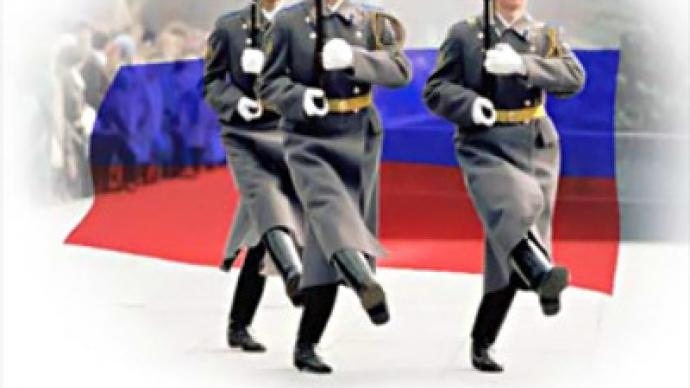Russia celebrates Defender of the Motherland Day

As Russia celebrates its traditional Army Day on February 23, the legitimacy of the date chosen is disputed. Still, most Russians take the chance to honour one of the largest and strongest armies of the world.
The Eastern Slavic tribes that were to become the forefathers of today’s Russians had their first taste of military action back in early 13th century and probably had their ways of celebrating contemporary military culture, of which little historical evidence has remained.
Russia had two military saints, each with a day of his own: Saint George, patron of Russia’s Army, whose day was celebrated on December 9, and Saint Andrew, patron of Russia’s Navy, whose day fell on December 13. But then, following the October Revolution, the Bolsheviks sought to abandon every memory that remained from the Russian Empire and those having a religious link were the first on the list for abolition.
Chosen by accident
However the newborn Soviet Union soon acquired an army of its own, the Red Army, which was formed by a decree issued on January 28, 1918. And with the Soviet state facing both a civil war and countless external threats, the Bolshevik government was in a desperate need of a national holiday that would boost the morale of Soviet troops.
It was planned to celebrate the new holiday for the first time just a year later, in 1919. But the motion was submitted to the All-Russian Central Executive Committee (a key legislative body of the Soviet Union) only on January 23, and a week was clearly not enough to complete the necessary preparations, so it was postponed till mid-February.
What was so special about February 23? Any calendar of 1919 can tell you: it happened to be a Sunday.
Since the foundation of the Russian Bolshevik movement in 1890s, its members started to celebrate the International Women’s Day, which their Western counterparts living by the Gregorian calendar marked on March 8.
At the time Russian Empire still kept to the Julian calendar, so the celebrations were 15 days earlier, which in the case of March 8 was February 23.
After the revolution Soviet Union adopted the Gregorian calendar, and ever since Women’s Day has occupied its proper date. But as the Bolsheviks were used to a holiday on February 23, they chose to keep it as Red Army Day.
Supported by a legend
Joseph Stalin disliked the idea of celebrating a non-significant date, so in 1938 he introduced a false story of a victory allegedly achieved over German occupants in 1918. This never happened in 1918. The incidents at Pskov and Narva actually took place in the 1920s, when the Red Army stopped an entirely different German offensive.
But Stalin personally endorsed the myth in his book titled ‘A Short History of the All-Union Communist Party of Bolsheviks’. With the help of a perfectly working Soviet propaganda machine, he had little trouble in making this false story believed in the Soviet Union.
Today, this story is officially considered a fraud. This was acknowledged by a State Duma decree of 2006 that omitted the words “Day of victory of Red Army over the German Kaizer’s troops (1918)” from the official description of the holiday.
Growing with the years
With the USSR prospering following World War II, the importance of Red Army Day, renamed Soviet Army and Navy Day in 1949, also grew. People started to treat it as not just a military celebration, but as a universal men’s holiday, an opportunity to congratulate all men of the country.
As a holiday of significance, February 23 just couldn’t collapse with the Soviet Union. It was only renamed ‘Defender of the Motherland Day’ in 1995 to keep its place among similar military holidays in many other countries.
In the UK and US Remembrance Day is celebrated on November 11, while Australia and New Zealand have ‘ANZAC Day’ on April 25.
Most of the ex-Soviet countries have retained the Soviet Army Day under different aliases, with many opting to move it to a different date.
Ruben Zarbabyan, RT












